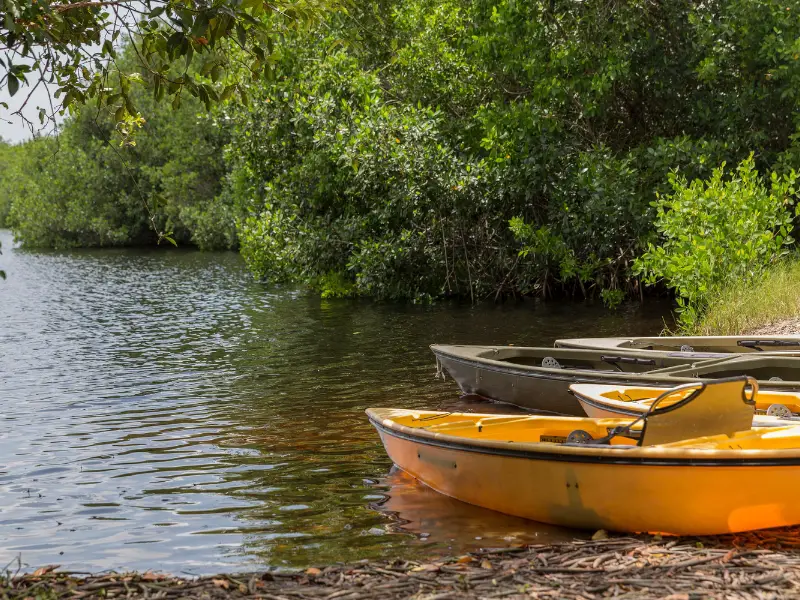Pay-to-fish ponds are a popular recreational activity in Florida, offering anglers the opportunity to catch a variety of fish in a controlled environment. These ponds are typically stocked with fish and offer amenities such as restrooms, picnic areas, and fishing gear rentals. Visitors pay a fee to access the pond and are often allowed to keep the fish they catch.
While pay-to-fish ponds are a relatively new concept, they have become increasingly popular in recent years. Many anglers appreciate the convenience and accessibility of these ponds, as they offer a guaranteed catch and a fun day out with family and friends. Additionally, pay-to-fish ponds can be a great option for those who do not have access to private fishing lakes or who do not want to travel far from home to fish.
Why Pay to Fish in Florida
Florida is known as the “Fishing Capital of the World,” with its abundant freshwater and saltwater fishing opportunities. But why pay to fish in Florida when there are plenty of free fishing spots available?
Firstly, pay-to-fish ponds offer a controlled environment that ensures a higher chance of catching fish. These ponds are stocked with a variety of fish species, including bass, catfish, and tilapia, making it easier for anglers to catch fish. Additionally, pay-to-fish ponds are often well-maintained, with clean banks, clear water, and easy access to the water.
Another reason to pay to fish in Florida is the convenience factor. Many pay-to-fish ponds are located near major cities, making it easier for anglers to access them. They also offer amenities such as restrooms, picnic areas, and fishing gear rentals, making it a great option for families and beginners.
Finally, pay-to-fish ponds offer a unique experience that can’t be found in natural bodies of water. Some ponds offer catch-and-release fishing, while others allow anglers to keep their catch for a fee. Some even offer night fishing or special events such as fishing tournaments.
In conclusion, while there are plenty of free fishing spots in Florida, pay-to-fish ponds offer a controlled environment, convenience, and a unique experience that make them a great option for anglers of all levels.
Best-Rated Fish Ponds in Florida

Florida is a popular destination for fishing enthusiasts, and pay-to-fish ponds are a great option for those who want to catch fish without having to travel far. Here are some of the best-rated fish ponds in Florida:
1. The Big Bass Lake
The Big Bass Lake is a popular pay-to-fish pond in North Florida. It is known for its large bass and catfish, and visitors can also catch bluegill and shell cracker. The pond is well-maintained and stocked regularly, making it a great spot for both experienced and novice anglers.
2. The Old Florida Fish Camp
The Old Florida Fish Camp is a rustic pay-to-fish pond located in Central Florida. It is a great spot for catching largemouth bass, catfish, and bluegill. The pond is surrounded by beautiful scenery and offers a peaceful fishing experience.
3. The Fishin’ Hole
The Fishin’ Hole is a family-owned pay-to-fish pond in South Florida. It is known for its large bass and offers a variety of other fish, including catfish, bluegill, and tilapia. The pond is well-maintained and has a picnic area and playground, making it a great spot for a family outing.
These are just a few of the best-rated fish ponds in Florida. Whether you’re a seasoned angler or just starting out, these ponds offer a great fishing experience for everyone.
Do You Need a Fishing License to Fish in a Private Pond in Florida
In Florida, a fishing license is required for most types of fishing activities. However, when it comes to fishing in private ponds, the rules are a bit different.
According to the Florida Fish and Wildlife Conservation Commission (FWC), a fishing license is not required when fishing in a private pond or on private property. This means that if you are fishing in a pay-to-fish pond that is on private property, you do not need a fishing license.
It is important to note that this exemption only applies to private ponds that are not connected to public waters. If the pond is connected to a river, stream, or other public waterway, a fishing license is required.
Additionally, if the private pond is stocked with fish that are not native to Florida, a special permit may be required. This permit can be obtained from the FWC.
In summary, if you are planning to fish in a pay-to-fish pond that is not connected to public waters, you do not need a fishing license. However, if the pond is connected to public waters or stocked with non-native fish, you may need a fishing license or special permit.
Conclusion
Florida pay-to-fish ponds offer a unique and convenient opportunity for anglers to enjoy fishing without the hassle of having to travel long distances or deal with the crowds of public lakes. With a variety of species available, anglers can target their preferred fish and enjoy a relaxing day on the water.
While the cost of fishing at pay-to-fish ponds may be higher than at public lakes, the convenience and quality of the experience may be worth it for some anglers. Additionally, many pay-to-fish ponds offer amenities such as rental equipment and on-site food options, making it a great option for families and groups.
It is important to note that pay-to-fish ponds are not a replacement for conservation efforts and responsible fishing practices. Anglers should still follow all state fishing regulations and practice catch and release to ensure the sustainability of the fish populations.
Overall, pay-to-fish ponds in Florida provide a unique and enjoyable fishing experience for anglers of all levels. With a little research and preparation, anglers can find the perfect pay-to-fish pond to suit their needs and enjoy a day on the water.
Related Articles:
